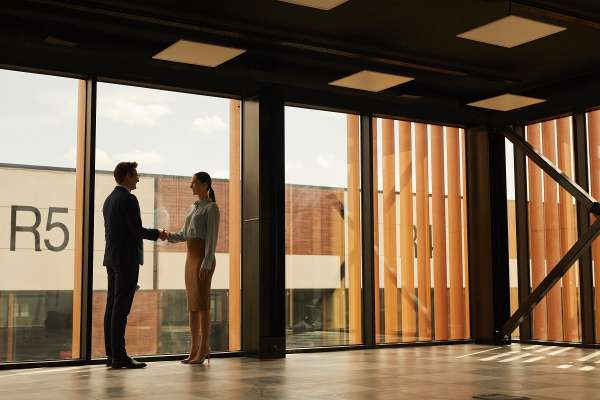Contact Our Manufacturing Solicitors
Our Manufacturing Lawyers can assist commercial businesses as they move into new commercial premises. If you need help of expert solicitors, please contact our manufacturing team via:
Moving to new commercial premises can be an exciting time for any business, but it can also come with legal considerations.
In order to ensure a smooth and stress-free move, particularly for manufacturers, it is important to understand the legal aspects of relocating.
The first step in moving to new commercial premises is to assess the commercial lease terms of your current premises. Is your current lease due to expire at a convenient date, or is there still a considerable unexpired term? You may need to negotiate an early surrender with your landlord if it is the latter.
There is often no obligation on the landlord to accept an early surrender of a lease, and they can exercise their discretion in this regard. The landlord may require payment of a surrender premium in exchange for the right to surrender.
The lease may contain a break option allowing you to terminate the lease early, usually on a set date, subject to a fixed notice period (typically six months before the break date).
It is important to consider the criteria of a break option very carefully, as non-compliance with any of the conditions can render the break ineffective, and once the relevant dates for serving the break notice or complying with the conditions have passed, the break right could be lost entirely.
If the lease terms permit you to assign it to a third party, this could also be an effective means of transferring your liabilities under the lease. However, outgoing tenants are often required to provide a guarantee for incoming tenants, which could keep you “on the hook” for a significant time, even after you have moved out of the premises.

Another key consideration when terminating or assigning a lease will be the condition of the property and any dilapidations liability which may have accrued during your time in occupation of the premises.
Manufacturing plant and equipment is often bulky, and their removal can cause significant disrepair to the premises, particularly to flooring and internal surfaces.
It is, therefore, important to plan the move carefully and negotiate the repair obligations in light of the yield-up provisions in the lease.
If you assign the lease to a third party, the incoming tenant may require you to make a lump sum payment to cover the accrued dilapidations liability to date, which will be due for payment at the end of the lease term.
In relation to any potential new premises, you should arrange professional surveys to ensure that the building is suitable for your business needs and consider issues such as energy efficiency, hours of access, load-bearing capacity (e.g. for heavy machinery) and electrical supply limitations.
You will also need to negotiate a new lease with the landlord of the new premises. The lease will cover key issues such as the rent amount, length of the lease, and any restrictions on the use of the property.
It is important to carefully review the lease to ensure that it meets the needs of your business and that you fully understand your rights and obligations as a tenant.
Depending on the nature of your business, you may need specific planning permission to operate from the new premises.
Planning permission is particularly relevant if you plan to make any changes to the building, such as installing new equipment, creating additional space or using outdoor spaces for storage.
It is important to obtain any necessary planning permission before you move in, as failure could result in penalties or even legal action by the local authority.
Suppose your new lease grants you the right to use the new premises for a particular use. In that case, this does not automatically mean that there is valid planning permission in place, and the onus is on you (as the occupier) to obtain this where necessary.
Ensuring the new commercial premises comply with all relevant health and safety regulations is important. Health and safety regulations may include:
You must instruct suitably qualified professionals to conduct safety assessments and make any necessary alterations and adjustments per their recommendations.
Safety assessments will be subject to landlord consent if your new lease restricts certain alterations to the premises.
Before you move in, it is important to ensure adequate insurance, which may include liability insurance, which covers any damage or injuries that occur on the premises, and (depending on what the requirements are under the new lease) building insurance, which covers any damage to the building itself.
If you plan to transfer any employees to the new premises, it is important to understand the legal requirements.
Legal requirements may include giving employees adequate notice, consulting with staff, providing information about the move, and ensuring that it does not negatively impact their working conditions.
Moving to new premises can be complex, but understanding the legal employment considerations can help ensure a smooth and stress-free transition.
It is always recommended to seek the advice of a legal professional to ensure that all legal requirements are met and that your business is protected.
Our Manufacturing Lawyers can assist commercial businesses as they move into new commercial premises. If you need help of expert solicitors, please contact our manufacturing team via: